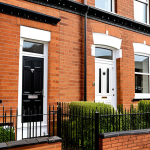Understanding Reverse Mortgages
Reverse mortgages are loan products designed mainly for senior homeowners, enabling them to convert part of their home equity into cash. They are particularly beneficial for UK senior homeowners seeking financial freedom. Unlike traditional mortgages, where payments are made to the lender, with reverse mortgages, the lender makes payments to the borrower. Essentially, this allows homeowners to unlock their home’s value without needing to sell or vacate the property.
In the UK, the concept of reverse mortgages evolved as aging populations required additional financial resources in their retirement years. Historically, reverse mortgages have increased in popularity as they offer a way to fund living expenses while allowing homeowners to continue residing in their homes. Unlike traditional mortgages, where repayment occurs progressively through monthly instalments, reverse mortgages do not require repayment until the homeowner sells the home, moves out, or passes away.
In the same genre : Maximize your tax breaks: the complete uk landlord’s guide to energy-efficient appliance deductions
The key differences between reverse mortgages and traditional mortgages are notably significant. Traditional mortgages require the borrower to make regular repayments, which gradually build equity in the property. In contrast, reverse mortgages decrease equity as the borrower receives funds from the lender over time. These distinctions make reverse mortgages a unique offering for homeowners seeking to maintain financial flexibility during their retirement years.
Eligibility Criteria for Reverse Mortgages
For UK senior homeowners considering a reverse mortgage, understanding the eligibility requirements is crucial. Eligibility is primarily based on the age of the homeowner, with lenders typically requiring a minimum age of 55 years. This age criterion ensures that the reverse mortgage serves its intended purpose of assisting older individuals.
Also read : How will the latest uk building regulations impact your existing property investments?
Beyond age, homeowners must also meet certain residency requirements. The property must be the primary residence of the borrower, which means they must reside in the home for 183 days or more each year. This residency stipulation ensures that the reverse mortgage aids those genuinely needing financial assistance in their primary living space.
The property value and equity level are also assessed. Typically, homeowners need significant home equity, generally at least 50% of the property value, to qualify. This equity is what provides the lender with security, as the loan amount will be based on the home’s value.
A crucial financial assessment involved is the debt-to-income ratio. This analysis evaluates whether homeowners have sufficient income or financial resources to cover ongoing property expenses, such as insurance and maintenance costs. These calculations ensure that borrowers can maintain the property without financial strain.
In summary, while age, residency, and property value play vital roles in eligibility, a thorough appraisal of the financial situation, inclusive of income assessments, ensures that the reverse mortgage suits both the lender and the homeowner’s needs.
Benefits of Reverse Mortgages
Exploring the benefits of reverse mortgages reveals how they provide substantial financial flexibility for UK senior homeowners. By unlocking home equity, these products offer a source of supplemental income, crucial during retirement years when other income streams may diminish.
One main advantage is the availability of an additional income stream. Instead of depleting savings or investments, reverse mortgages allow homeowners to convert part of their home’s equity into cash. This can be particularly valuable for covering healthcare costs, funding home renovations, or even managing debt consolidation, thus safeguarding other financial resources.
Moreover, reverse mortgages offer possible tax advantages. Unlike salary or investment earnings, the funds received are typically not taxable, providing a more efficient way to access much-needed cash flow without increasing tax liabilities. This advantage enhances the appeal of reverse mortgages as a strategic tool for financial planning.
These benefits combined illustrate why reverse mortgages are increasingly considered by retirees looking to maintain financial autonomy without undermining their living standards.
Potential Risks and Considerations
While reverse mortgages offer enticing financial flexibility for UK senior homeowners, potential risks and considerations deserve careful attention. One significant concern is the impact on heirs and estate planning. Reverse mortgages reduce home equity, potentially leaving less inheritance for heirs. This aspect can significantly alter one’s financial legacy and influence familial relationships.
Beyond inheritance considerations, reverse mortgages come with various costs. These include origination fees, service charges, and accruing interest over time. Accrued interest can substantially increase the total amount owed, potentially affecting the homeowner’s financial stability. Understanding these costs upfront is crucial for a comprehensive assessment.
Independent financial advice can be invaluable in navigating the complexities of reverse mortgages. An advisor can help weigh the drawbacks against the substantial benefits. By doing so, homeowners can make informed decisions that align with their financial goals and retirement plans. Seeking guidance ensures that the chosen financial strategy fits individual circumstances and maximizes potential benefits.
Comparison with Alternative Financial Options
As UK senior homeowners navigate their financial options, it’s important to compare reverse mortgages with other financial alternatives like home equity loans and lines of credit. Reverse mortgages allow homeowners to withdraw cash from their home equity, offering financial freedom without the monthly repayments required by home equity loans. The latter entails borrowing against home equity while maintaining monthly repayments, which can be burdensome for those on a fixed income.
Government assistance programs also provide financial support options. These programs can offer grants or pensions to senior homeowners but often come with strict eligibility criteria and limited funding, making them less flexible.
Evaluating the long-term financial implications of each option is essential. While reverse mortgages may reduce the equity passed to heirs, they also offer funds for ongoing expenses without immediate repayment obligations, aiding seniors in managing their financial planning effectively.
Steps to Obtain a Reverse Mortgage
Obtaining a reverse mortgage in the UK involves several crucial steps that ensure the process is thorough and transparent. For senior homeowners, embarking on this journey requires understanding the detailed application process, gathering the necessary documentation, and knowing the timeline from application to fund disbursement.
Application Process
The application process for reverse mortgages is relatively straightforward but requires attention to detail. It typically begins with a preliminary consultation with a lender or financial advisor to determine eligibility and suitability for a reverse mortgage. This initial discussion helps align the homeowner’s financial goals with the offerings of a reverse mortgage.
Documentation Requirements
Once the decision to proceed is made, applicants must compile essential documentation. Key documents usually include proof of age, residency status, property deeds confirming ownership, and financial statements that reflect the homeowner’s income and any existing debts. Comprehensive documentation ensures the lender can accurately assess the property value and applicant’s financial standing.
Timeline
The timeline from application to approval and the subsequent disbursement of funds can vary. Typically, this process might take several weeks, depending on how quickly the borrower completes their documentation and any specific lender requirements. During this period, the lender conducts a thorough assessment, including a property appraisal, to finalize the loan terms. Once approved, funds are disbursed according to the agreed-upon structure, providing homeowners with the financial flexibility they seek.
In summary, while the reverse mortgage application process involves multiple steps, senior homeowners who understand these requirements are well-positioned to benefit from the financial freedom reverse mortgages offer.
Expert Opinions and Insights
As reverse mortgages become more prevalent amongst UK senior homeowners, insights from financial experts provide invaluable guidance. These professionals emphasize the impact of reverse mortgages in offering financial freedom during retirement. Experts agree that understanding the mechanics of these loans is vital, as they convert home equity into cash without requiring sale or relocation.
Financial advisors specializing in reverse mortgages highlight several common misconceptions. One major myth is that the homeowner loses ownership of the property. However, throughout the loan period, the homeowner retains title and any appreciation in home value. Moreover, the debt is usually less than the property’s worth upon maturity, providing potential equity for heirs.
Industry specialists predict a continued rise in reverse mortgages, attributing it to the growing aging population needing additional financial resources. They foresee evolving products tailored to meet diverse needs, making reverse mortgages a flexible option for senior homeowners. Analysts anticipate regulatory frameworks will ensure fair practices and safeguard both lenders and borrowers.
Case Studies and Real-Life Examples
Exploring real-life examples of reverse mortgages can vividly illustrate how these financial products benefit UK senior homeowners. Many seniors, like Jane and Michael, have leveraged reverse mortgages to enhance their quality of life during retirement. Jane, a retired teacher, used a reverse mortgage to fund necessary home renovations, allowing her to remain in her beloved home comfortably. Michael, having faced rising medical expenses, found that unlocking his home equity provided a crucial funding source for healthcare without depleting his savings.
Different scenarios, such as these, demonstrate the practical applications and financial flexibility offered by reverse mortgages. Each homeowner’s unique financial situation dictates their approach, whether it be managing existing debt or securing funds for leisure activities.
Feedback from these homeowners emphasizes the overall positive impact on their financial well-being. They report feeling reassured about their ability to handle unexpected costs while maintaining their lifestyle. This feedback shines a light on the real, tangible benefits that reverse mortgages can provide to those considering this financial path.
Frequently Asked Questions
For many UK senior homeowners, understanding reverse mortgages can be daunting. Here we address common questions, debunk myths, and provide clear answers, aiding informed financial freedom decisions.
What are the primary benefits of reverse mortgages?
Reverse mortgages convert a portion of home equity into cash, providing a noticeable boost in financial flexibility. Especially valuable during retirement, they offer funds for healthcare, home renovations, or debt management without necessitating monthly repayments.
Do homeowners lose ownership with reverse mortgages?
A prevalent misconception is the loss of home ownership. However, the homeowner retains the title throughout the loan period. This allows them to benefit from any appreciation in property value, keeping potential equity for heirs.
How does interest accrue on reverse mortgages?
Interest compiles over the loan’s lifespan instead of being paid monthly. This results in increasing the loan balance over time, affecting the estate left to heirs. It’s wise to calculate these costs with a financial advisor to understand long-term implications.
Can reverse mortgages affect eligibility for government assistance?
Since reverse mortgage funds are typically considered a loan and not income, they might not directly impact eligibility for some government programs. However, it is essential to seek tailored advice to understand fully how a reverse mortgage might affect specific benefits.
Feedback from financial advisors further emphasizes understanding these nuanced details before proceeding, ensuring reverse mortgages align with individual fiscal needs and goals.







